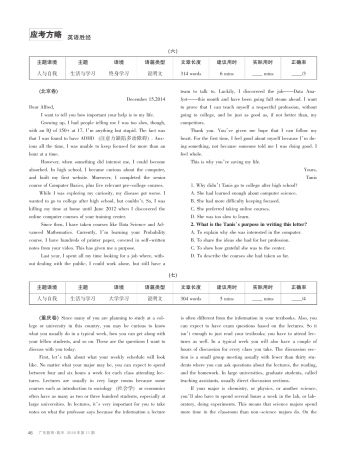December 15,2014
Dear Alfred,
I want to tell you how important your help is to my life.
Growing up, I had people telling me I was too slow, though, with an IQ of 150+ at 17, I’m anything but stupid. The fact was that I was found to have ADHD (注意力缺陷多动障碍). Anxious all the time, I was unable to keep focused for more than an hour at a time.
However, when something did interest me, I could become absorbed. In high school, I became curious about the computer, and built my first website. Moreover, I completed the senior course of Computer Basics, plus five relevant pre-college courses.
While I was exploring my curiosity, my disease got worse. I wanted to go to college after high school, but couldn’t. So, I was killing my time at home until June 2012 when I discovered the online computer courses of your training center.
Since then, I have taken courses like Data Science and Advanced Mathematics. Currently, I’m learning your Probability course. I have hundreds of printer paper, covered in self-written notes from your video. This has given me a purpose.
Last year, I spent all my time looking for a job where, without dealing with the public, I could work alone, but still have a team to talk to. Luckily, I discovered the job——Data Analyst——this month and have been going full steam ahead. I want to prove that I can teach myself a respectful profession, without going to college, and be just as good as, if not better than, my competitors.
Thank you. You’ve given me hope that I can follow my heart. For the first time, I feel good about myself because I’m doing something, not because someone told me I was doing good. I feel whole.
This is why you’re saving my life.
Yours,
Tanis
1. Why didn’t Tanis go to college after high school?
A. She had learned enough about computer science.
B. She had more difficulty keeping focused.
C. She preferred taking online courses.
D. She was too slow to learn.
2. What is the Tanis’s purpose in writing this letter?
A. To explain why she was interested in the computer.
B. To share the ideas she had for her profession.
C. To show how grateful she was to the center.
D. To describe the courses she had taken so far.
(重庆卷)Since many of you are planning to study at a college or university in this country, you may be curious to know what you usually do in a typical week, how you can get along with your fellow students, and so on. These are the questions I want to discuss with you today.
First, let’s talk about what your weekly schedule will look like. No matter what your major may be, you can expect to spend between four and six hours a week for each class attending lectures. Lectures are usually in very large rooms because some courses such as introduction to sociology (社会学) or economics often have as many as two or three hundred students, especially at large universities. In lectures, it’s very important for you to take notes on what the professor says because the information a lecture is often different from the information in your textbooks. Also, you can expect to have exam questions based on the lectures. So it isn’t enough to just read your textbooks; you have to attend lectures as well. In a typical week you will also have a couple of hours of discussion for every class you take. The discussion section is a small group meeting usually with fewer than thirty students where you can ask questions about the lectures, the reading, and the homework. In large universities, graduate students, called teaching assistants, usually direct discussion sections.
If your major is chemistry, or physics, or another science, you’ll also have to spend several hours a week in the lab, or laboratory, doing experiments. This means that science majors spend more time in the classroom than non-science majors do. On the




